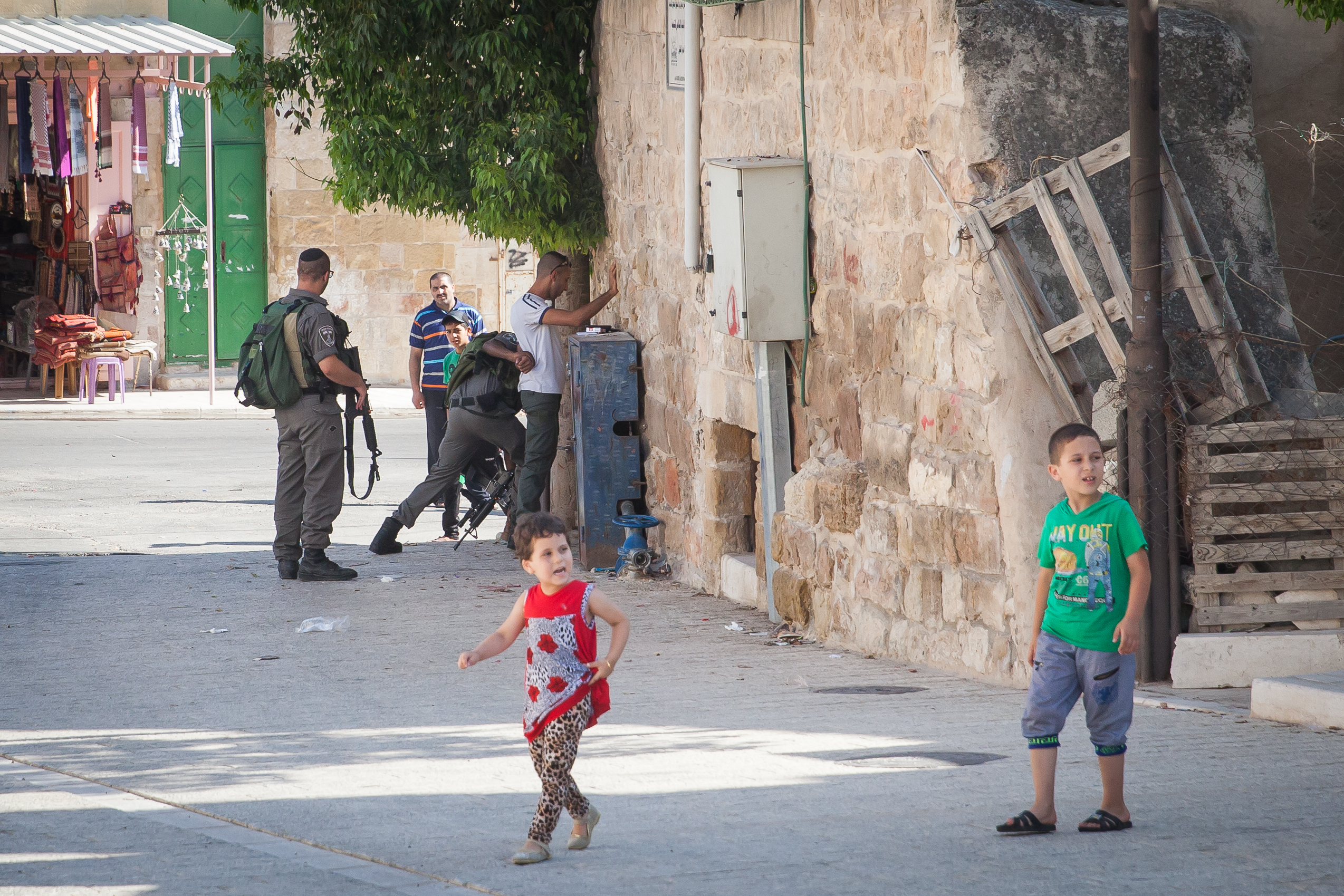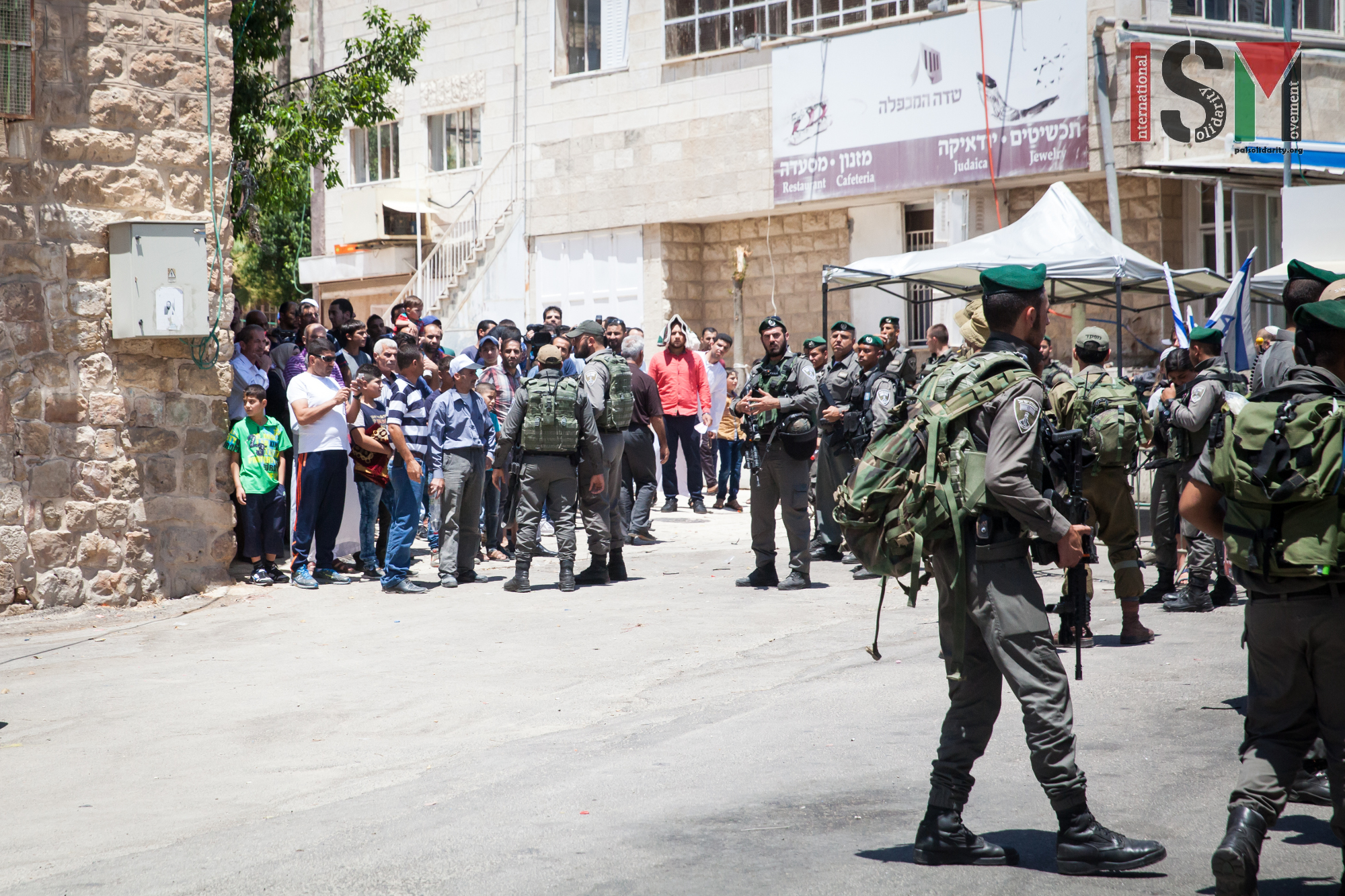Tag: Checkpoint
-

The impossibility to know – navigating the (psychological) siege of Hebron
8th July 2016 | International Solidarity Movement, al-Khalil team | Hebron, occupied Palestine Israeli forces during the last week of the Islamic holy month of Ramadan have increased and stepped up restrictions for Palestinians in occupied al-Khalil (Hebron). Thus they are severely limiting Palestinians possibilities to exercise their religion during this most important month in…
-

Worshippers for Ramadan prayer harassed by settlers and soldiers
1 July 2016 | International Solidarity Movement, al-Khalil team | Hebron, occupied Palestine On 1st July 2016, Israeli forces severly restricted access to Ibrahimi mosque in occupied al-Khalil (Hebron) for noon-prayer, while settlers were demonstrating at a checkpoint nearby the mosque. After pregnant 27-year old Sarah Tarayra was gunned down by Israeli forces at Ibrahimi…
-

Continuous restrictions of the freedom of religion in Hebron
21st June 2016 | International Solidarity Movement, al-Khalil team | Hebron, occupied Palestine Today, 21st June 2016, Israeli forces delayed and stopped several Palestinians on their way to noon-prayer at Ibrahimi mosque in occupied al-Khalil (Hebron). During the last few days, Israeli forces have been stopping, checking and delaying Palestinians at several checkpoints in the…
